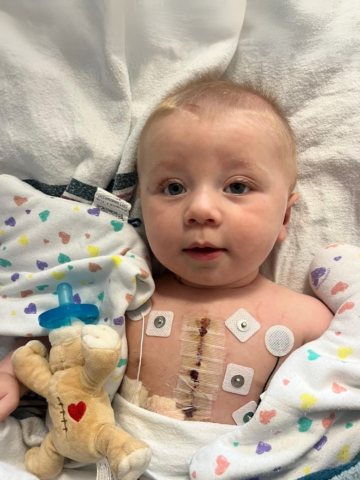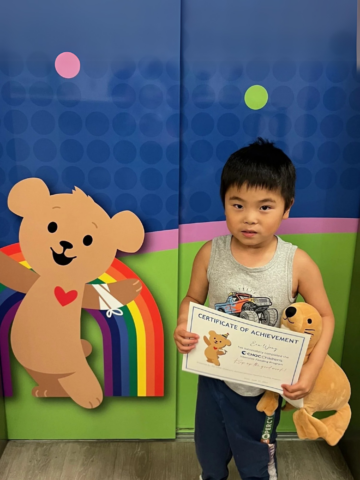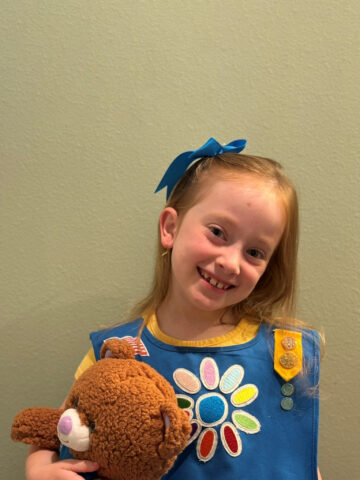From the very beginning, Melissa and Kris knew their twins were fighters—they were also a surprise; the couple hadn’t been sure if they were going to be able to have more children.
“We knew these twins had a purpose and a reason. From the very beginning of their lives, they were a miracle all around.”
Melissa experienced hyperemesis gravidarum also known as HG, a rare condition characterized by extreme nausea and vomiting. Most pregnant women experience morning sickness, but less than 3% experience HG, which can lead to near-constant vomiting, dehydration, weight loss and malnutrition.
“From the second I was pregnant, I was extremely ill. The three of us shouldn’t have lived through my pregnancy, but we did,” Melissa says. “The twins are little fighters. From the womb until now, they’re just little fighters.”
Her body was so depleted that she was put on extended bedrest and hospitalized on and off throughout her pregnancy. She needed a PICC line, or peripherally inserted central catheter, for two-thirds of her pregnancy. PICC lines are sometimes needed when intravenous (IV) medications are required over a long period of time.
“The babies were getting all their nutrients from me, and I was so sick. It was really scary,” she says. “One night while on hospitalized bedrest I needed four blood transfusions. My body was shutting down. The babies were ok through everything—the blood transfusions, me getting IVs, copious amounts of potassium, medications, everything. They just kept going.”
Showing signs of gastroesophageal reflux disease (GERD)
A few days after they were born, Bowie and Finley started showing signs of gastroesophageal reflux (GER). This occurs when a small amount of acidic stomach fluid or food in the stomach goes back up into the esophagus or swallowing tube. Two-thirds of healthy infants experience gastroesophageal reflux.
When the reflux causes intolerable discomfort or complications, children may be experiencing gastroesophageal reflux disease (GERD). Nurses at the delivery hospital told the parents the babies were spitting up and throwing up more than they should be. By the time they went home a couple days after they were born, they had lost a bit more of their birth weight than they were supposed to. Melissa and Kris’ older children Scotlynd and Kingston had GER when they were younger, so they thought they knew what to expect.
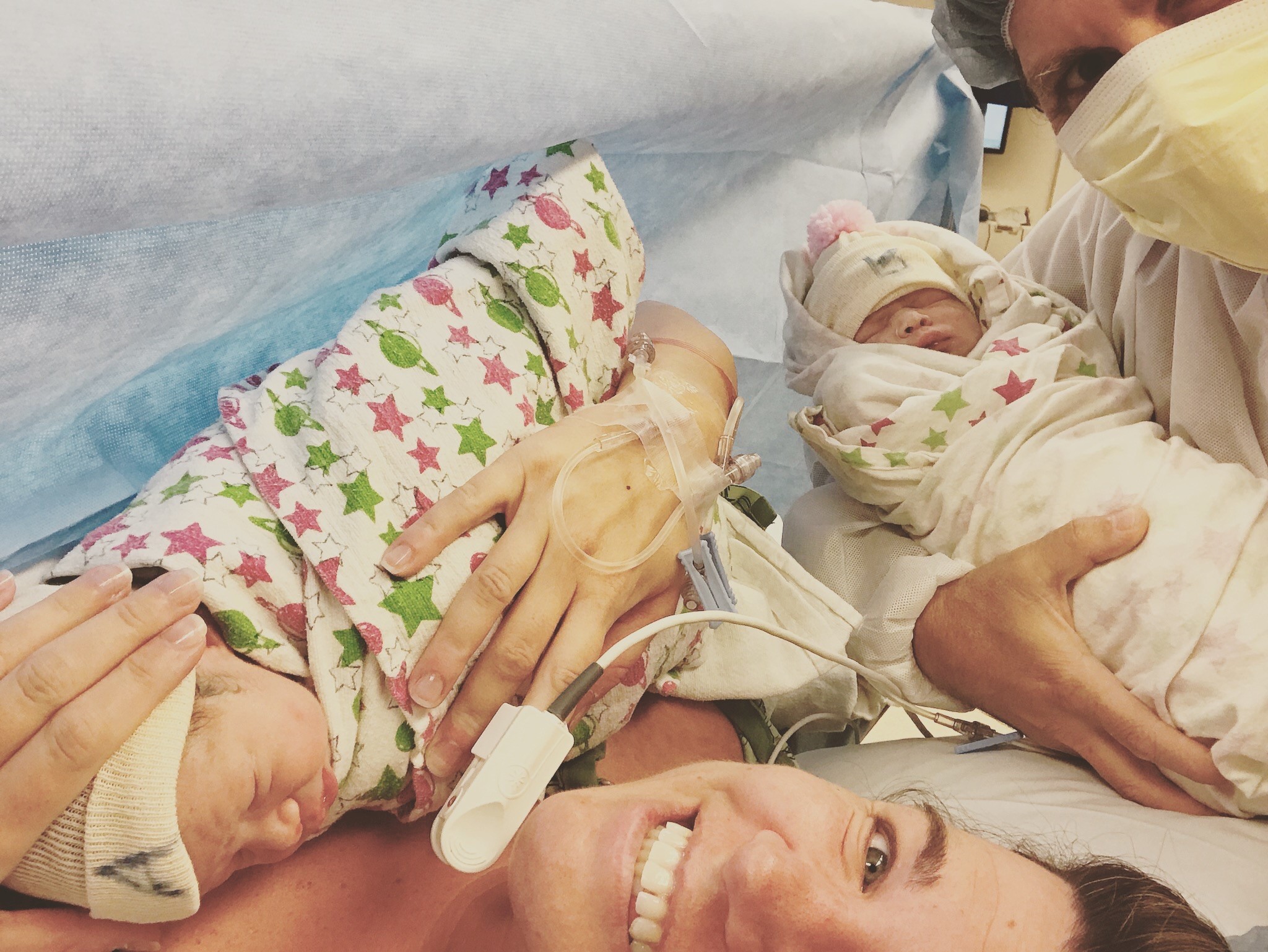
Most cases of GER resolve without medication. In rare cases, treatment of GERD requires surgery.
“The older kids just got through it and was never life-threatening,” Melissa said. “With the twins, it went from ‘all babies spit up, they will be ok like their siblings’ to failure to thrive and life-threatening episodes.”
Each twin had life-threatening episodes of GERD. Melissa recalls an especially frightening night with Finley.
“After one middle of the night feeding, Finley threw up and that time, I wasn’t sure if she was ok. I went back in her nursery to check on her and she wasn’t breathing. It was the most terrifying moment. She was limp. I screamed for my husband. We tried everything to wake her up.”
Their pediatrician referred them to CHOC pediatric gastroenterologist Dr. Greg Wong. The two physicians worked together to improve GERD symptoms. Despite trying to change feeding times, amount and type of formula, and medication, the symptoms just weren’t going away.
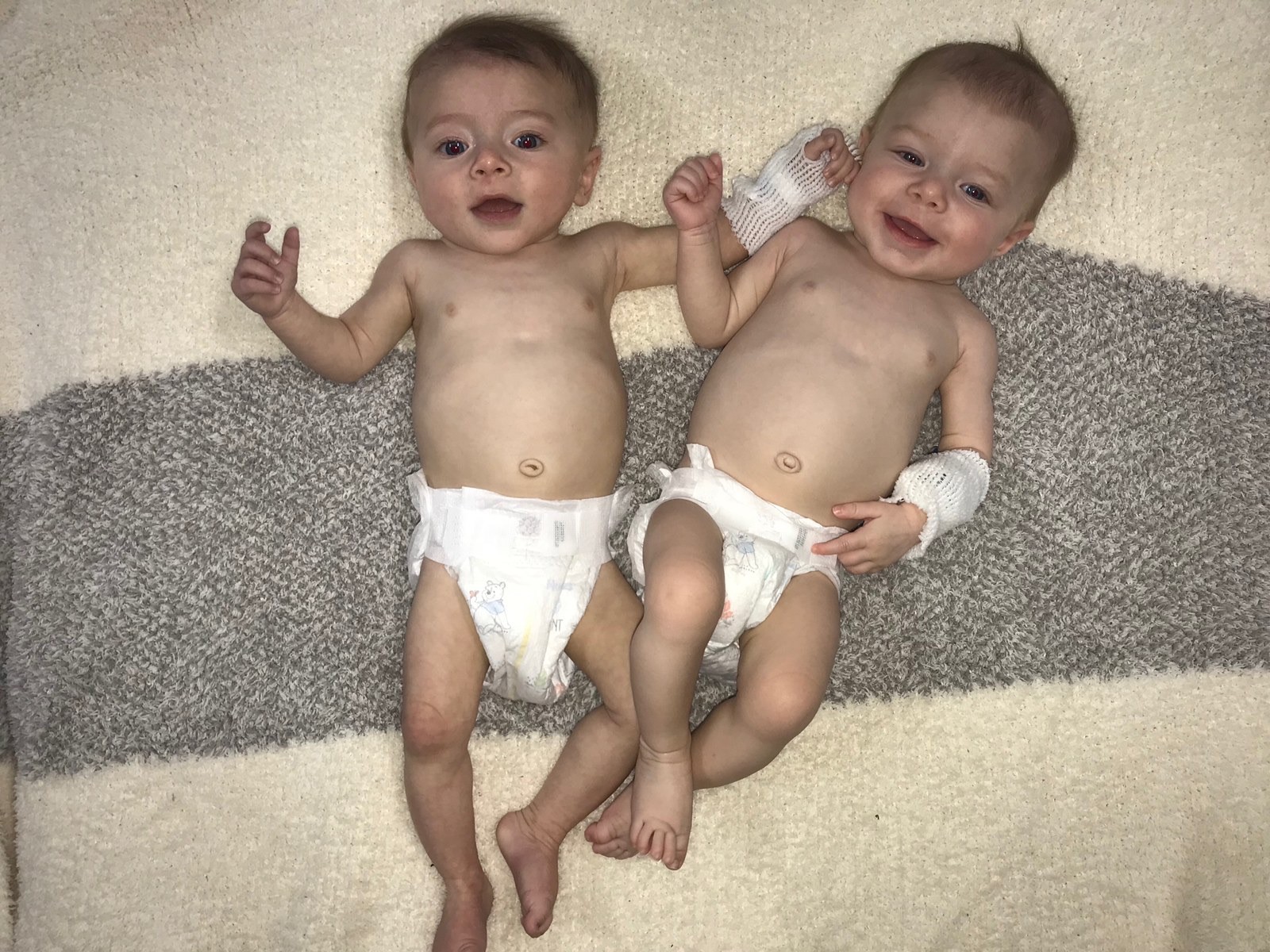
“We wanted to stay within the CHOC network. That was important to me because our older son had been treated at CHOC, and we fell in love with the CHOC family,” Melissa says. “We know how not only wonderful and caring they are, but from a medical perspective too. We wanted the best for them and we felt CHOC was the best.”
Bowie and Finley’s path to surgery
The family hadn’t wanted to prematurely jump to surgery as an option, but in the end, it was the right decision. They were referred to Dr. Peter Yu, a pediatric general and thoracic surgeon at CHOC.
“Dr. Yu made us feel so comfortable. He really knew what he was doing,” Melissa said. “The CHOC team felt that we had exhausted all other options, and that surgery was the best option for the twins.”
Bowie and Finley underwent surgery when they were about 6 months old. Dr. Yu performed a minimally invasive procedure known as laparoscopic Nissen fundoplication to repair the twins’ GERD. At the same time, he repaired their hernias.
“They are not identical babies, but they had identical surgeries,” Melissa says.
Surgery was performed on one baby at a time. Afterwards, they were brought to recovery rooms right next to each other, so one parent could be with each twin, and they could be close by.
“Before surgery, the babies were so sickly,” Melissa said. “After surgery, they are completely different babies.”
The twins are now feeding, growing and thriving. One of many benefits of this surgery has been less laundry. Melissa and Kris used to have a full hamper of laundry every day because the twins went through clothes and sheets so often.
Celebrating holidays in the hospital
Melissa’s birthday was the day after surgery.
“It was another birthday spent in the hospital, but it put things in perspective,” she said. “The best gift I could’ve gotten was for them to be healthy and thrive again. You think about the important things, and everything else fades away.”
Helmet therapy and physical therapy
Part of the family’s efforts to control the twins’ side effects of GERD had been to keep them in one position to limit their acid reflux. Because of this, they weren’t able to do tummy time which helps prevent flat spots on the back of the head.
After surgery, Finley and Bowie wore helmets for three months that helped correct the growth and shape of their skull.
Because of GERD, the twins’ backs were strong, but their cores and trunks were weak. They are in physical therapy to strengthen their bodies and help them roll and move around using the correct muscles.
A message to other moms
Melissa’s advice for other moms taking care of babies with GERD is to just keep asking questions and remember that every baby is unique.
“There are a lot of levels of GERD, and I didn’t know how severe it could be until it happened to us,” she said. “I learned not to compare my babies to anyone else’s. Every kid is different.”
She added that this experience taught her that trials are temporary, and things will get better.
“Even in the heart of it when you can’t get through another day, and you have to take it minute by minute,” she said. “I always say it’s only temporary. It might not get better right away, but it will.
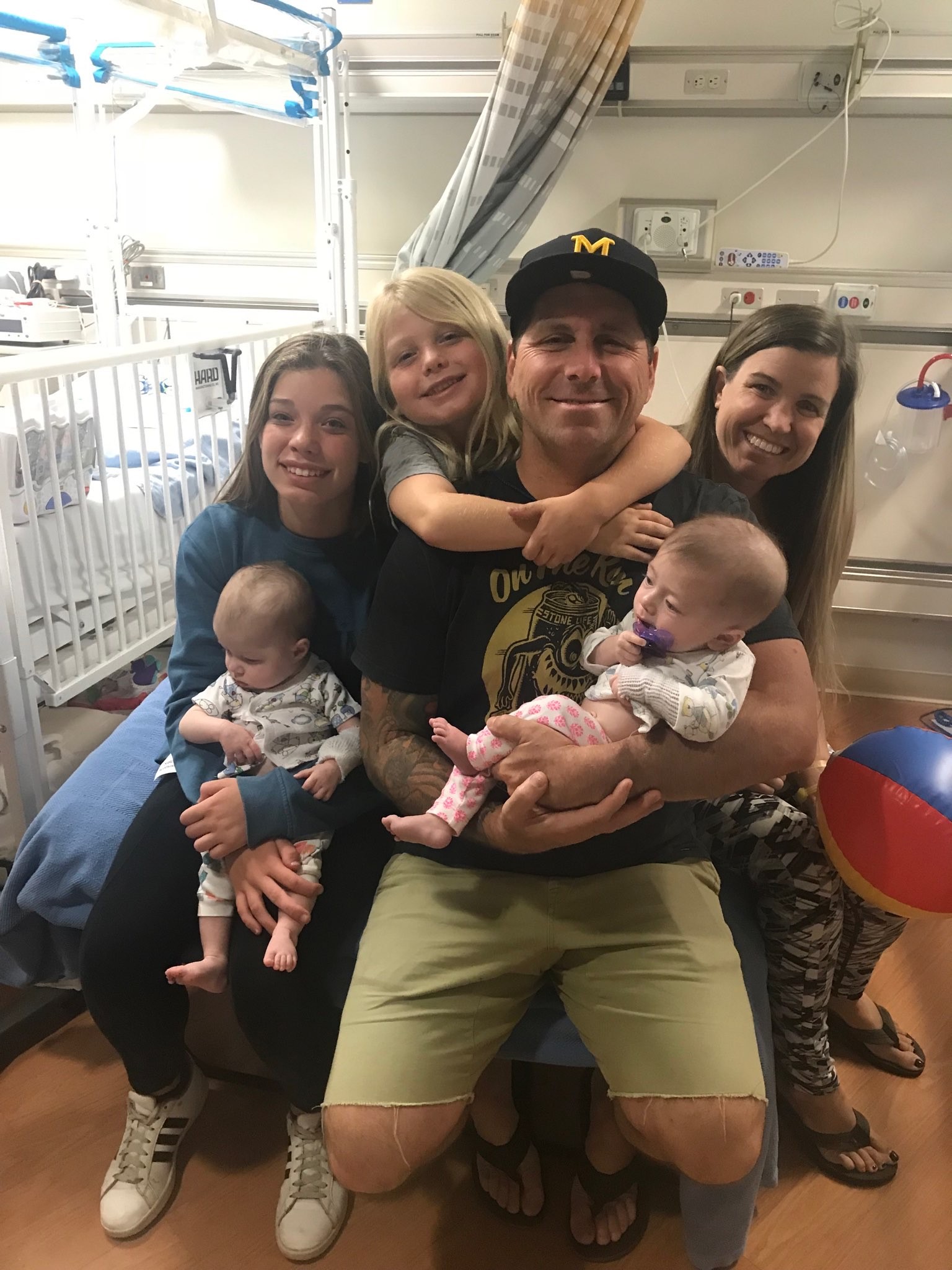
Celebrating milestones
Last Mother’s Day, Melissa was on bedrest in the hospital, days away from giving birth to her twins. This year, she’s looking forward to celebrating her family being complete—and healthy.
“You have to look back and see where you’ve come from to see how wonderful it is. Last year wasn’t this way. I spent last Mother’s Day with them in the hospital preparing to give birth,” she recalls. “It’s amazing to see how far we have come in a year. We are moving forward, and we can truly enjoy them and enjoy our time as a whole family.”
The twins’ first birthday falls right after Mother’s Day. The family is planning a big celebration in their neighborhood.
“We want to include everybody that was there for them from my pregnancy through the first year of life,” Melissa says. “We want to celebrate that they made it and thank everyone for their help. Everything has been so up and down and up and down, and now were in the clear.”

